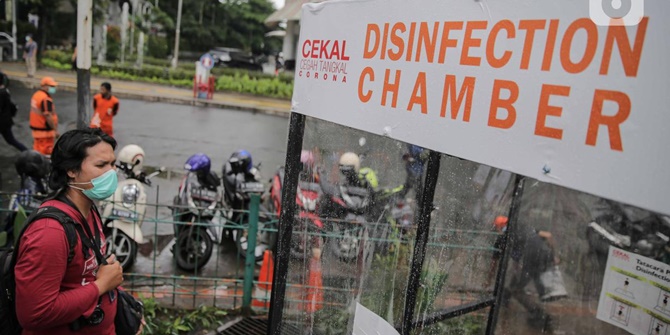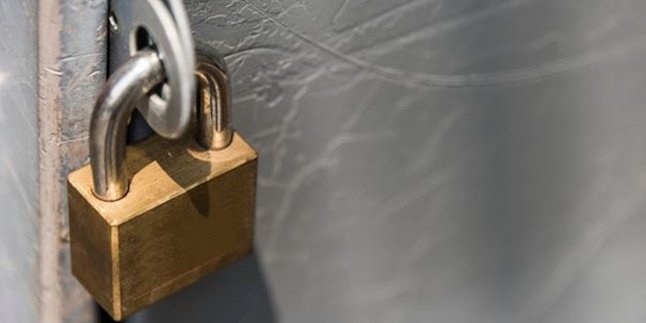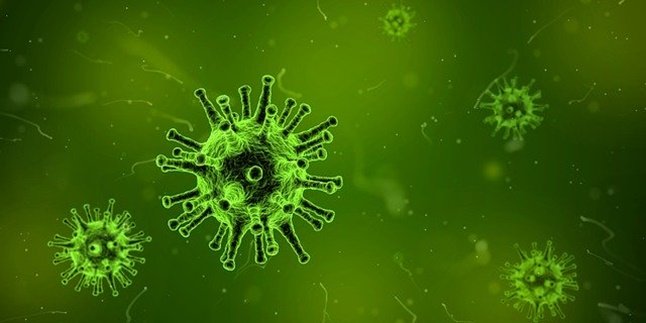Kapanlagi.com - The presence of the corona virus pandemic covid-19 covid-19 worldwide, makes disinfectant suddenly popular. Disinfectant is believed to be able to ward off the corona virus covid-19 if sprayed on something that is indicated to be infected with the virus.
However, it is no longer used on objects, the human body also becomes an object to be sprayed with disinfectant. Health experts reveal the dangers of disinfectant when sprayed on the body. So is it true that disinfectant is dangerous when sprayed on the body?
"Do not spray disinfectant directly on someone's body, because this can be dangerous. Use disinfectant only on the surface of objects. Let's fight covid-19 properly!" tweeted @WHOIndonesia on Sunday, (29/03/2020).
This tweet is a response from the World Health Organization (WHO) Indonesia, which sees the proliferation of disinfectant spraying on the human body. Some regions in Indonesia even install disinfectant gates and disinfectant chambers to kill the corona virus covid-19.
The poster shared by the twitter account @WHOIndonesia states that spraying disinfectant on the body using alcohol or chlorine will not kill the virus that has entered the body. The content of chemicals in disinfectants according to WHO Indonesia can be harmful if it comes into contact with mucous membranes (eyes and mouth).
WHO Indonesia also reminds that disinfectants containing chlorine or alcohol can only be used on surfaces. However, they must be used according to the proper instructions.
1. Safe as Long as the Mixture is Correct
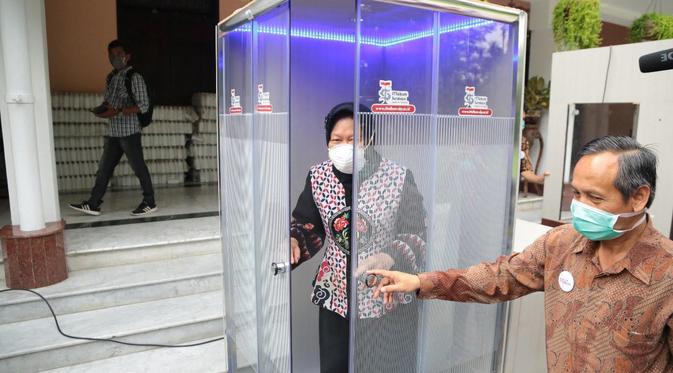
(credit:liputan6.com)
According to a press release from the Public Relations Department of Surabaya on Sunday, (29/03/2020), a different statement was made by the Chair of the Department of Pharmaceutical Sciences, Faculty of Pharmacy, Airlangga University Surabaya (Unair), Retno Sari.
According to her, spraying disinfectant on the human body through a disinfectant chamber in Surabaya is safe to do. This is because the disinfectant used for spraying in the disinfectant chamber is benzalkonium chloride. This compound is an ammonium quaternary group that acts as a surfactant like soap.
"So the material used in the chamber all this time is certainly safe. If someone says there are side effects and so on, it means that all the materials will be used in an improper dosage, there will definitely be side effects," said Retno Sari, as quoted from the Surabaya Public Relations website.
The same opinion was also expressed by the Professor Nidom Foundation (PNF). In his statement, he revealed that the content of benzalkonium chloride in disinfectant falls into the ammonium quaternary group. Therefore, it is safe to use on humans.
"InshaAllah, it is safe for humans, as long as the mixture is correct," said Prof. Nidom.
2. Types of Disinfectants
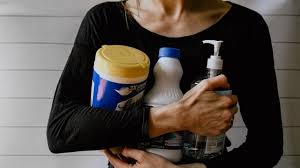
(credit:liputan6.com)
Disinfectant is a liquid used to eliminate germs and diseases on surfaces. This liquid can only kill microorganisms that are directly exposed to the disinfectant. Disinfectants function by damaging the lipid layer of viruses, including corona covid-19.
There are several types of disinfectants used according to their functions. The following are types of disinfectants along with their functions as reported by sehatq.com:
a. Glutaraldehyde 2%: this type of disinfectant is usually used as a disinfectant for instruments that cannot be sterilized at high temperatures.
b. Chloroxylenol 5%: this type of disinfectant functions as an antiseptic as well as a disinfectant. Usually, this type of disinfectant is used to clean medical equipment by soaking it in a mixture of 70% alcohol.
c. Chlorine: this type of disinfectant is usually used to clean water in swimming pools. This substance is often referred to as chlorine.
3. Side Effects of Glutaraldehyde Disinfectant
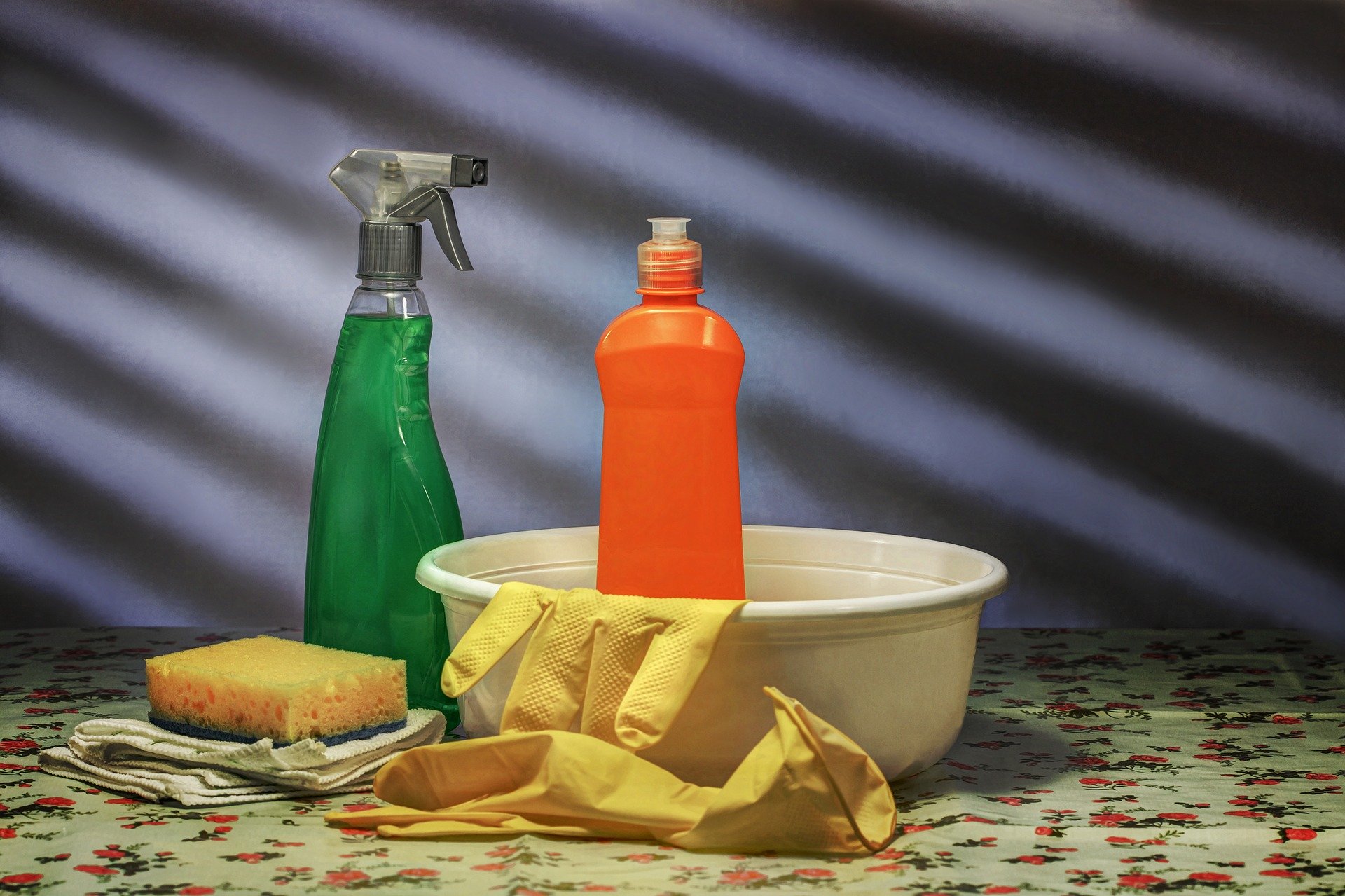
(credit:pixabay.com)
Chemicals generally have side effects for users. This also applies to the use of disinfectants. Some side effects that arise from the use of glutaraldehyde disinfectants are as follows:
- Nausea
- Headache
- Respiratory problems
- Asthma
- Rhinitis
- Eye irritation
- Dermatitis
- Skin discoloration
4. Better to Wash Hands
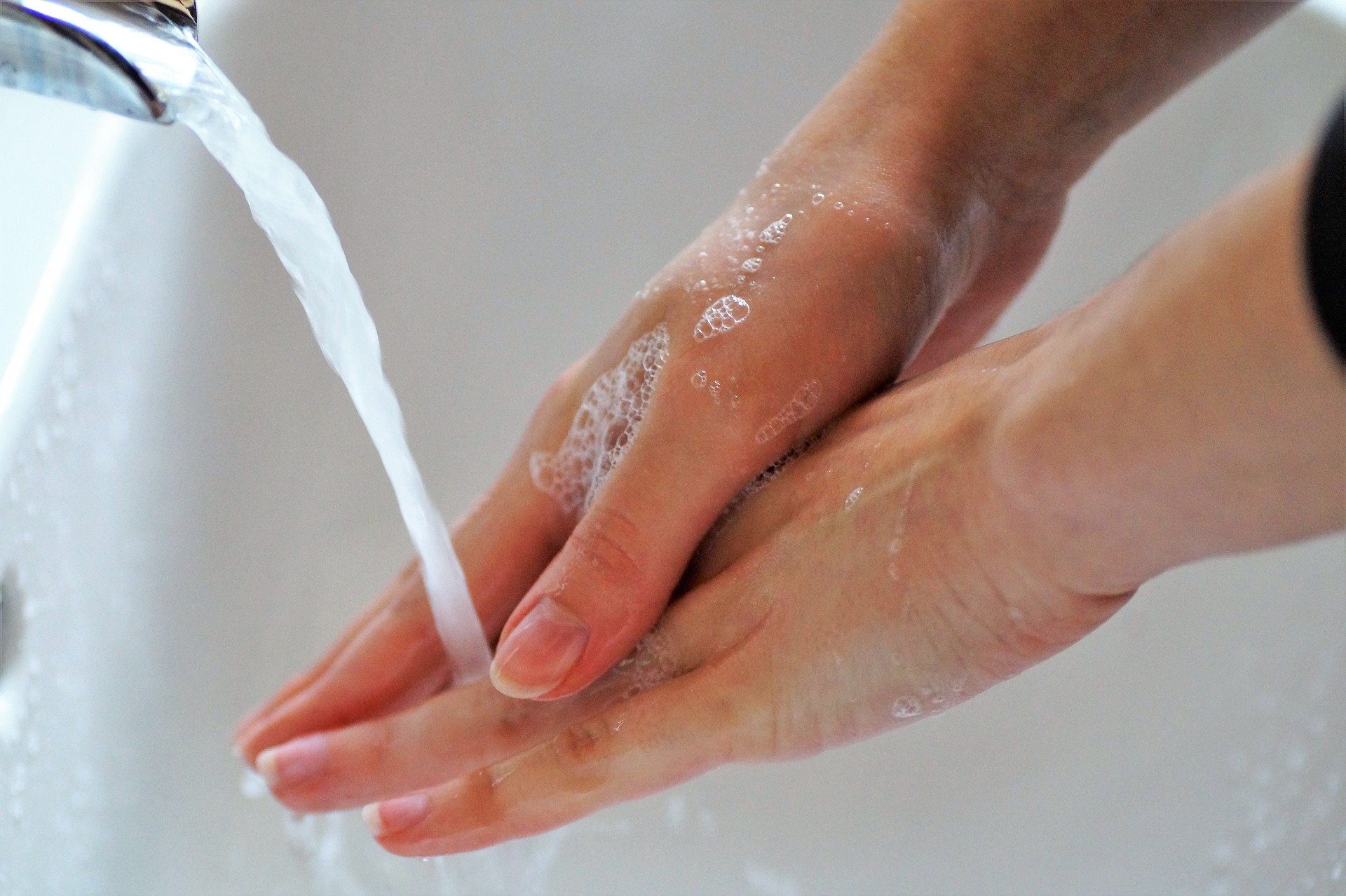
(credit:pixabay.com)
In response to differing opinions from experts about the dangers of spraying disinfectants on the body, it is better to wash hands using soap as a way to prevent viruses and diseases. Washing hands is an effort to prevent the entry of viruses and diseases carried through the hands.
The current situation has made everyone aware of sanitation and cleanliness, including washing hands. You can wash your hands before eating, about to eat, and after using the toilet. Especially when you feel your hands are dirty. Try to wash your hands for 20 seconds to ensure they are thoroughly clean.
5. Proper Hand Washing Technique
There are 5 recommended steps for hand washing by the Ministry of Health of the Republic of Indonesia:
- Wetting the entire hands with clean running water.
- Rubbing soap onto the palms of the hands, the back of the hands, and between the fingers.
- Cleaning the area under the nails.
- Rinsing the hands with clean running water.
- Drying the hands with a towel or tissue.
So, that is the information from experts regarding disinfectants and the dangers of spraying them onto the body. Although there are different opinions, it is better to avoid spraying disinfectants that can come into contact with the eyes and mouth. This is done to prevent side effects from disinfectants if they are sprayed onto the human body. In addition, maintain cleanliness, sanitation, and a healthy diet to avoid viruses.
(kpl/nlw/gen)
Disclaimer: This translation from Bahasa Indonesia to English has been generated by Artificial Intelligence.
